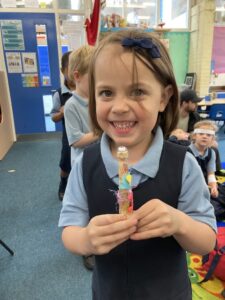‘A high-quality history education will help pupils gain a coherent knowledge and understanding of Britain’s past and that of the wider world. It should inspire pupils’ curiosity to know more about the past.’
The Primary National Curriculum Framework 2014
Aims
At Abbey CE VA Primary School, our aim is to inspire pupils’ curiosity about the past and develop their understanding of how historical events have shaped our world today. We believe that History helps pupils understand the complexity of people’s lives, the process of change, the diversity of societies, and their own identity within modern Britain. Our curriculum aims to develop critical thinkers who can analyse historical evidence, understand different perspectives, and make connections between different periods and places. We strive to ensure every child develops a chronological framework of British and world history while understanding how historians investigate the past and construct historical claims.
How We Teach History
Our approach to teaching History is enquiry-based, encouraging pupils to think like historians and develop their own questions about the past. Lessons are carefully structured from the Collins Primary Connected History Scheme to develop both historical knowledge and skills, with an emphasis on examining and interpreting historical evidence.
Teachers use a variety of engaging resources including primary sources, artefacts, photographs, and digital media to bring history to life. We create opportunities for pupils to experience history through visits to historical sites, museums, and through workshops with historical experts. Role-play and drama activities help pupils understand historical perspectives and empathise with people from the past.
Historical enquiry is at the heart of our teaching. Pupils learn to ask perceptive questions, think critically about evidence, and develop perspective and judgement. We encourage pupils to make connections between different historical periods and to understand how past events have influenced our present world.
Assessment is conducted through discussions, written work, and project outcomes. We focus on both historical knowledge and the development of key historical skills such as chronological understanding, interpretation, and analysis of sources.
What Skills and Knowledge Will Your Child Learn?
Throughout their time at Abbey, pupils develop essential historical skills and knowledge. In the early years, children begin to develop their understanding of the past through exploring their own personal history and that of their family. They start to use historical vocabulary related to the passing of time.
As they progress, pupils develop more sophisticated historical understanding and skills:
Historical Knowledge:
- Changes within and beyond living memory
- Lives of significant individuals from the past
- Important historical events in Britain and the wider world
- Local history studies
- Ancient civilisations and their influence
- Britain’s settlement by different groups
- Changes in Britain from the Stone Age to 1066
- Studies of historical periods beyond 1066
Historical Skills:
- Chronological understanding and sequencing events
- Historical enquiry using various sources
- Interpretation of historical evidence
- Understanding cause and consequence
- Recognising similarity and difference
- Identifying continuity and change
- Understanding historical perspectives
- Making connections between time periods
By Upper Key Stage 2, pupils will have developed:
- A secure chronological framework of British history
- Understanding of world history and ancient civilisations
- Skills in analysing historical sources
- Ability to construct historical arguments
- Understanding of historical concepts
- Knowledge of how the past influences the present
- Skills in historical research and investigation
These skills and knowledge progress systematically through the year groups, building on previous learning. Our approach develops important transferable skills including:
- Critical thinking and analysis
- Research and investigation
- Evaluation of evidence
- Understanding different perspectives
- Communication and debate
- Empathy and understanding
Through our history curriculum, pupils learn to:
- Ask perceptive questions about the past
- Think critically about historical evidence
- Understand historical concepts
- Make connections between different periods
- Develop their own historical judgements
- Communicate their historical knowledge
- Understand their place in Britain’s story
We believe these skills and knowledge are essential for pupils to understand their place in time and to develop as informed citizens who understand how the past has shaped our present world.
Curriculum Overview
- History Curriculum Overview (104.50KB)
National Curriculum

History
Toys in the Past – Year 1 History A Journey Back in Time! In our exciting Toys in the Past topic, Year 1 children became

Learning about the Romans
Year 4 enjoyed a fantastic trip to the St Albans Cathedral this term where they learnt about how the Romans lived and the impact they had on the local area.

WW2 Projects
Year 6 have completed some incredible WW2 projects for their extended home learning task this half term.
Celebrating historic black heroes
This week the Year 5 class had the opportunity to attend a workshop at the St Albans Museum and Gallery.

History – Discovering St Albans’ Victorian Heritage
Our History topic this term focuses on the impact and legacy of the Victorians on our city.
